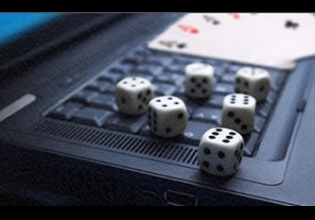
As the “rest of the world” anxiously awaits the return of Full Tilt Poker, U. S. players wait for their money from the U. S. Department of Justice from the seizures/sale of Full Tilt Poker and the question of future regulation of the online poker industry hangs in the air, a noted poker player/author has penned an examination of the situation that should be a warning to those who believe anything is imminent on the situation.
Poker player Jeff Hwang, who has also written three successful books on Omaha Hold’em, used The Motley Fool to examine the current state of the online poker industry in the United States. Ominously titled “Sorry, Mr. Online Poker. Nobody Cares About You,” Hwang seems to believe that there is little chance that online poker regulation will be coming to the U. S. any time soon. Hwang states early on in the article that “it might seem like time to PartyPoker like its 2006…Only it’s not.”
Hwang accurately points out some of the problems with current legislation that is sitting on the tables in Washington. Those efforts – Texas Representative Joe Barton’s bill in the House and the yet-unintroduced bill from Senators Harry Reid of Nevada and Jon Kyl of Arizona in the Senate – would actually look to further restrict gaming, according to Hwang, instead of an expansion. Hwang also looks at the likelihood that there would be states that wouldn’t “opt in” to the federal regulatory framework, leaving “20 to 30” states (instead of all 50 in an unregulated market) that would participate in the federal compact.
With this in mind, Hwang says that the actual revenues would fall far short of what some have estimated. The American Gaming Association (an advocate of federal regulation) estimates that there is $4 billion per year wagered on off-shore sites; another Wall Street study estimates the amount in the $6 to $10 billion range. If Hwang’s assessment is correct, that number could be cut at least in half and probably much further using his “20 to 30” state likelihood.
In analyzing the online poker industry itself, Hwang sees ominous clouds on the horizon. PokerStars, already the dominant leader in the industry, has only made themselves stronger with the acquisition of Full Tilt Poker. Hwang estimates that, once Full Tilt returns to life next month, the PokerStars/Full Tilt Poker monstrosity will garner somewhere between 50%-70% of the online poker audience; other players in the game, including PartyPoker, 888 and the Microgaming Network, struggle to even obtain 10% of the market share.
With this monopoly, Hwang says, “Online players will gravitate to one large site with the greatest volume and greatest variety of games…much in the same way that eBay benefits from network effects where buyers and sellers ultimately gravitate to one site.” Pointing out the costs associated with online poker – sign up bonuses, affiliate and rake back programs and other promotions – it would not be cost effective for sites to sign up in the United States for a limited part of the market.
Hwang also looks at the federal versus state regulation of the industry and sees problems. Despite the possibility of 20 to 30 states participating in a federal system, the idea of 47 different sets of rules (Utah has already opted out on any gaming and Delaware and Nevada have passed some sort of intra-state gaming) would not draw enough competition and revenue to be feasible to online poker companies. “The longer we go without federal legislation, the more states will come online and (it is) more likely the industry will wind up with fractured poker markets that look like France, Spain, Italy and Denmark,” Hwang notes.
As to the possibility of federal legislation, Hwang’s outlook is less than rosy. While many are in favor of federal legislation, which will have to wait for Congress’ “lame duck” session following the November 6 general election, Hwang took the pulse at this year’s Global Gaming Expo and was not excited. “The sense I got during G2E is that the chance of (federal regulation) actually happening this year is close to nil.”


















